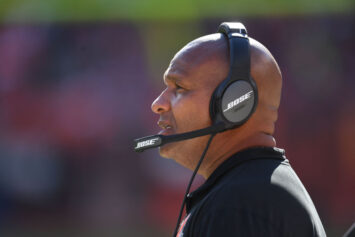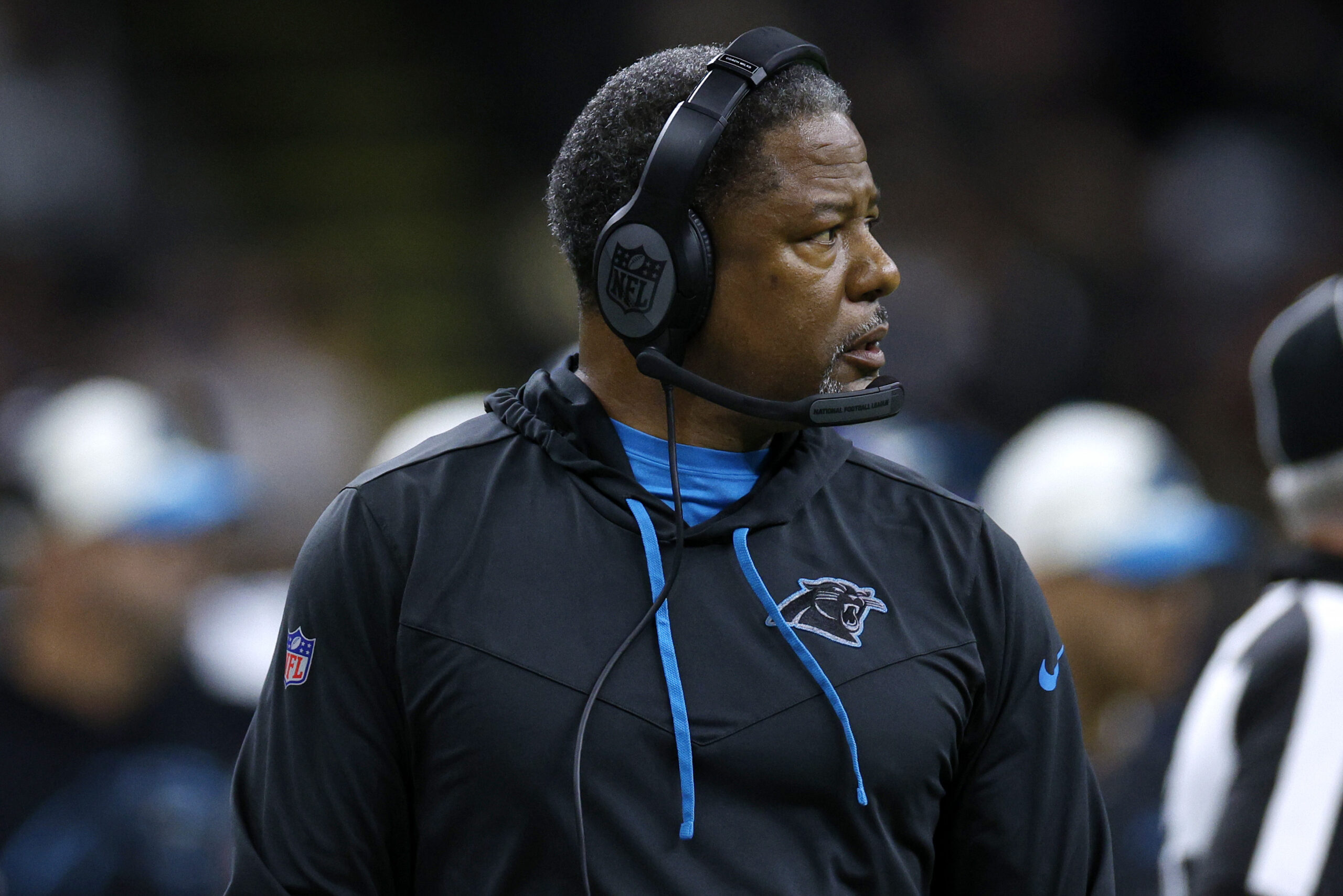Charlie Strong is slated to coach next week when the University of Texas team goes up against in-state “rival” TCU, a team they owned for 20 years prior to the Horned Frogs’ recent resurgence about six years ago. But all indications from insiders claim Strong’s days as the Texas head coach are numbered.
When he was first given the lofty Longhorns job there were a whole bunch of “hallelujahs” coming from across the football landscape. However, there were certainly a number of individuals who felt Strong’s designation was nothing more than an Affirmative Action hire and he would be out in less than a year. Mack Brown, the last Longhorns coach, was in Austin for 16 years before being shown the exit, and he won a national championship.
It was the hope of many that Strong would be there at least that long. But there have been calls for his dismissal at the end of each season. A 6-7 inaugural season in 2014, followed by a 5-7 record in 2015 meant that 2016 had to be a much better season. It wasn’t.
(Photo Credit: Getty Images)
During Mack Brown’s tenure as the Longhorns coach, his record was 158-48 with a .767 win percentage. Strong’s record as the head coach at Louisville was 37-15, good for a .712 win percentage. His final two squads in 2012 and 2013 went 23-3.
However, whatever was working at Louisville has not been working at Texas.
In a football crazy state, and at a school with the deepest of pockets, going 16-20 over three years simply is not good enough. It appears that this weekend’s inexplicable loss to the 1-9 Kansas Jayhawks sealed the deal for Coach Strong.
However, one could argue that coaching goes beyond simple wins and losses. When Strong came aboard at Texas in the wake of beloved former coach Mack Brown’s dismissal, many insiders say that Texas football was in the midst of a malaise that had a great deal to do with players being spoiled and having a false air of entitlement.
Much of Strong’s early work was getting rid of players that weren’t doing as he asked. A total of nine players were either suspended or dismissed from the team within Strong’s first month on campus.
UT football’s student athlete graduation rate was 56 percent the year prior to his arrival It went up to 72 percent the following year, according to The Institute for Diversity and Ethics in Sports. One could argue that his disciplinary actions alone were integral to that number virtually skyrocketing in one year.
But very few coaches are fired for low graduation rates. In fact, I can’t think of one right now. It’s about winning. First, last and always.
In 2014, the Texas program had one player ranked in the top 100 players in the nation by ESPN’s Top 300, Defensive End Derick Roberson, who was ranked 77th. In 2015, there were three; DeShon Elliot, Malik Jefferson and Anthony Wheeler.
Prior to the start of this year, Stong had signed a stellar recruiting class that included OLB Jeffrey McCulloch, WR Devin Duvernay, safety Brandon Jones, offensive lineman Patrick Hudson and DT Jordan Elliot, all of whom were ranked among the nation’s Top 100 recruits.
It would seem that Strong was due for great things as the number of top recruits picking UT as their institution of choice increased every year. An early victory over then 10th-ranked Notre Dame had Longhorn fans smiling, but the following losses to Cal, Kansas State, Oklahoma, Oklahoma State, West Virginia and Kansas have boosters, whose support was a bit iffy since he arrived in Austin, calling for his head.
The University of Texas football is big time football, and big time college football has shown us over and over again that they really don’t care about building solid young men.
One thing is for certain, whoever takes over might want to consider thanking Strong for leaving a team full of solid dudes with great attitudes. With Strongs firing, only 12 of the 128 FBS coaches are black.




